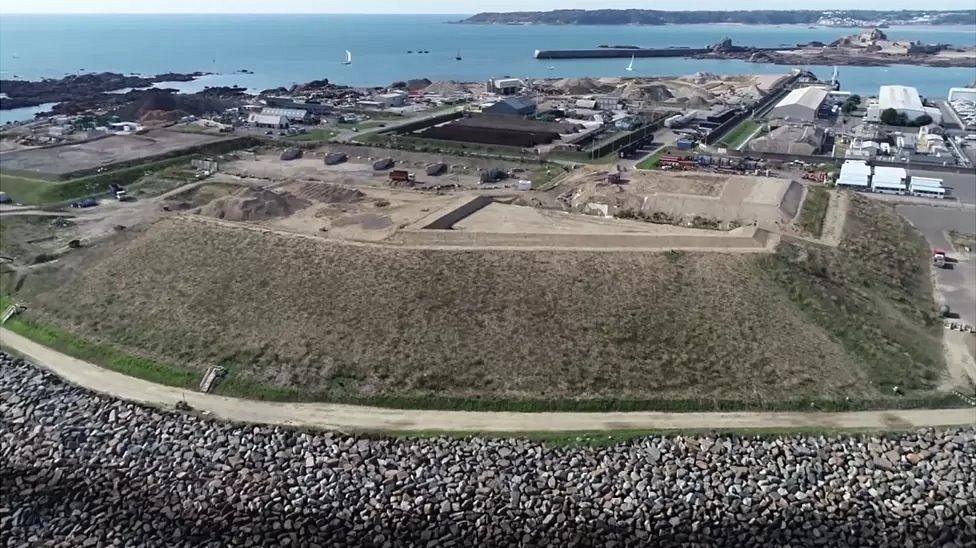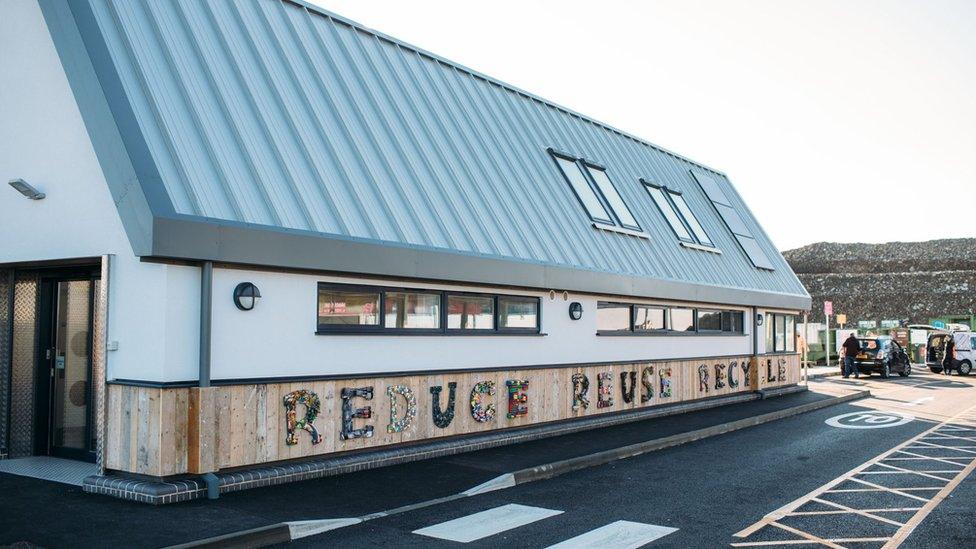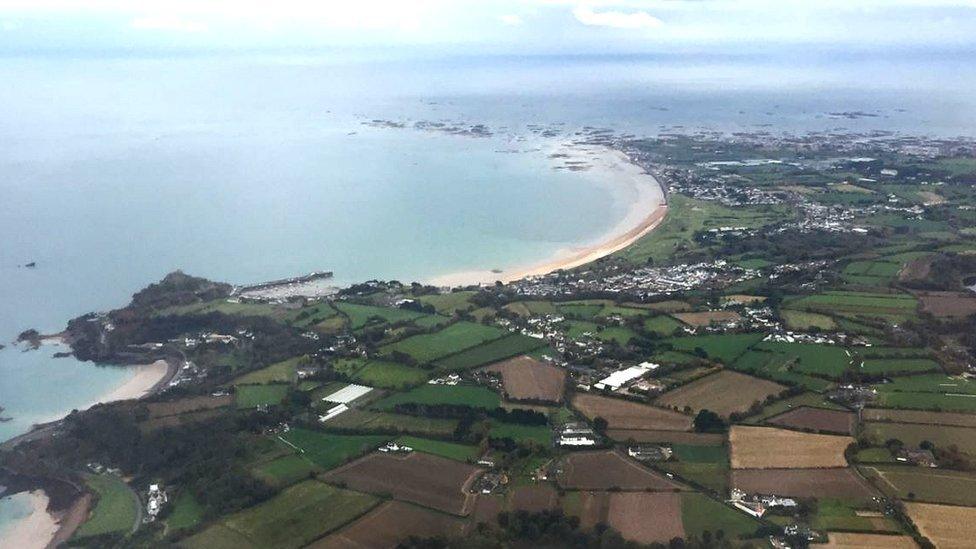Plan for more toxic waste dumping at La Collette supported
- Published

Politicians supported increasing the height of an existing waste mound and the creation of new mounds
Jersey politicians have overwhelmingly supported government plans to continue dumping toxic waste at La Collette.
Authorities have been putting such waste into landfill for a number of years, breaching planning permission.
Ministers received political support for the maximum height of an existing waste mound to be increased, and for new mounds of waste to be created.
A recently submitted retrospective planning application, external for the existing mound still requires formal approval.
'Hazardous waste'
Toxic waste includes asbestos and contaminated soils from development at old gas works, scrapyards, industrial plants and on reclaimed land at Jersey's Waterfront.
It is stored in waste containment cells and buried at La Collette.
The government has planning permission to fill up to the top of the sea wall [rock armour revetment], but a mound known as the East Headland now reaches up to 55ft (17m) higher than this.
A planning application to increase the height of this mound was rejected by the planning committee in March.
But Infrastructure Minister Tom Binet told the States Assembly that there was "no viable alternative", and said the site would not be able to accept any more hazardous waste from 7 September if his plan was not accepted.
He said: "Failure to support it would leave the planning panel with an unreasonable level of responsibility that would, in all probability, result in an imminent planning decision that would cause all construction and development work in the island to cease.
"It could also mean no new hospital, no new schools and no new homes.
"In these troubled times, to describe that as unwise would be a huge understatement."
'Future generations'
But some politicians expressed concerns about the impact on the environment.
"What we are faced with now is a proposal to carry on placing toxic waste, asbestos, on the lowest lying part of the island, at a time when we know there are rising sea levels and climate change and nobody knows how severe that is going to be," said St Helier Constable Simon Crowcroft, one of three politicians to vote against the motion, external.
He said: "I don't like the idea of leaving that waste for future generations and I wonder what they will think when they look back at this assembly and say: 'Had they really exhausted all the possibilities of dealing with the toxic waste?'"
Plans to create additional mounds of inert waste, which could include building materials such as concrete, rubble and clay, proved to be less controversial.
Deputy Binet said the decision would provide officials with about four years in which to develop a long-term strategy for the management of hazardous and inert waste.

Follow BBC Jersey on Twitter, external and Facebook, external. Send your story ideas to channel.islands@bbc.co.uk, external.
Related topics
- Published6 July 2023
- Published18 July 2023

- Published18 April 2023
